第2章 SECT. I. That Polytheism was the primary Religion
It appears to me, that, if we consider the improvement of human society, from rude beginnings to a state of greater perfection, polytheism or idolatry was, and necessarily must have been, the first and most ancient religion of mankind. This opinion I shall endeavour to confirm by the following arguments.
It is a matter of fact incontestable, that about 1700 years ago all mankind were polytheists. The doubtful and sceptical principles of a few philosophers, or the theism, and that too not entirely pure, of one or two nations, form no objection worth regarding. Behold then the clear testimony of history.
The farther we mount up into antiquity, the more do we find mankind plunged into polytheism. No marks, no symptoms of any more perfect religion. The most ancient records of human race still present us with that system as the popular and established creed. The north, the south, the east, the west, give their unanimous testimony to the same fact. What can be opposed to so full an evidence?
As far as writing or history reaches, mankind, in ancient times, appear universally to have been polytheists.
Shall we assert, that, in more ancient times, before the knowledge of letters, or the discovery of any art or science, men entertained the principles of pure theism? That is, while they were ignorant and barbarous, they discovered truth: But fell into error, as soon as they acquired learning and politeness.
But in this assertion you not only contradict all appearance of probability, but also our present experience concerning the principles and opinions of barbarous nations. The savage tribes of AMERICA, AFRICA, and ASIA are all idolaters. Not a single exception to this rule. Insomuch, that, were a traveller to transport himself into any unknown region; if he found inhabitants cultivated with arts and science, though even upon that supposition there are odds against their being theists, yet could he not safely, till farther inquiry, pronounce any thing on that head: But if he found them ignorant and barbarous, he might beforehand declare them idolaters; and there scarcely is a possibility of his being mistaken.
It seems certain, that, according to the natural progress of human thought, the ignorant multitude must first entertain some groveling and familiar notion of superior powers, before they stretch their conception to that perfect Being, who bestowed order on the whole frame of nature. We may as reasonably imagine, that men inhabited palaces before huts and cottages, or studied geometry before agriculture; as assert that the Deity appeared to them a pure spirit, omniscient, omnipotent, and omnipresent, before he was apprehended to be a powerful, though limited being, with human passions and appetites, limbs and organs. The mind rises gradually, from inferior to superior: By abstracting from what is imperfect, it forms an idea of perfection:
And slowly distinguishing the nobler parts of its own frame from the grosser, it learns to transfer only the former, much elevated and refined, to its divinity. Nothing could disturb this natural progress of thought, but some obvious and invincible argument, which might immediately lead the mind into the pure principles of theism, and make it overleap, at one bound, the vast interval which is interposed between the human and the divine nature. But though I allow, that the order and frame of the universe, when accurately examined, affords such an argument; yet I can never think, that this consideration could have an influence on mankind, when they formed their first rude notions of religion.